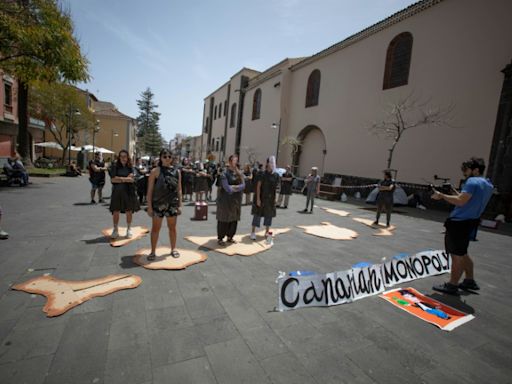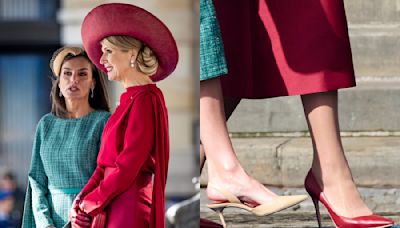Search results
5 days ago · The Tribunal of the Holy Office of the Inquisition (Spanish: Tribunal del Santo Oficio de la Inquisición), commonly known as the Spanish Inquisition (Inquisición española), was established in 1478 by the Catholic Monarchs, King Ferdinand II of Aragon and Queen Isabella I of Castile.
- 15 July 1834
- Grand Inquisitor and Suprema designated by the crown
- 1 November 1478
2 days ago · Isabella I (Spanish: Isabel I; 22 April 1451 – 26 November 1504), also called Isabella the Catholic (Spanish: Isabel la Católica), was Queen of Castile and León from 1474 until her death in 1504. She was also Queen of Aragon from 1479 until her death as the wife of King Ferdinand II .
- 11 December 1474 – 26 November 1504
- Isabella of Portugal
2 days ago · An important element in the formation of Spain's empire was the dynastic union between Isabella I of Castile and Ferdinand II of Aragon in 1469, known as the Catholic Monarchs, which initiated political, religious and social cohesion but not political unification.
People also ask
When did Isabella I Die?
How did Isabella's marriage affect the unification of Spain?
Why was Isabella important?
How old was Isabella when she was born?
3 days ago · It rapidly became a crucial hallmark of Islamic civilization in Spain, watching over the city, protected by great mountains and acres of forest. Nasrid rule in Spain came to an end in 1492 with the Christian conquest by Catholic monarchs Ferdinand II and Isabel I, who shared a common desire to recapture territory from the Muslims. Upon ...
5 days ago · The next paper discusses one of Isabel’s descendants, Isabel Clara Eugenia, daughter of Philip II of Spain and joint ruler of the Low Countries with her husband Albert in the early seventeenth century.
2 days ago · Isabella II, 1833–68. The Carlist wars; Moderates, progressives, and the generals; Economic expansion; The Revolution of 1868 and the Republic of 1873; The restored monarchy, 1875–1923. Stability, 1875–98; Opposition movements, 1898–1923; Primo de Rivera (1923–30) and the Second Republic (1931–36) Primo de Rivera; The Second ...
2 days ago · He returned to Spain to be Queen Isabella II’s confessor, to oversee his congregation, and to publish a few books. In 1868, due to the Spanish Revolution, both Archbishop Claret and the queen ...






